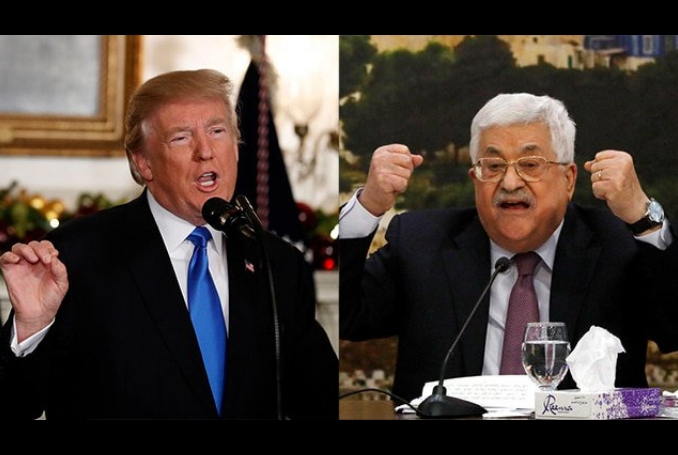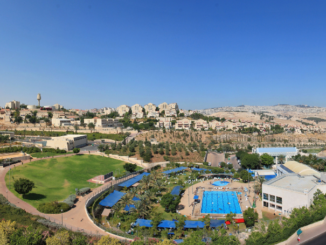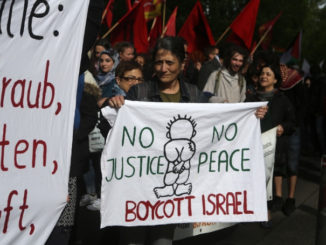
By Ramona Wadi
From the details which have emerged so far about the Bahrain economic summit, the US has made clear that the first phase of its so-called “deal of the century” will not involve any political discussion.
An unnamed US official described this decision as an opportunity to show that, “You can’t have peace without economic stability and opportunity.” If the economic plan works, Palestinians “really have the opportunity to thrive.”
The condescending language does not hide the fact that US President Donald Trump is overtly pushing for the ultimate normalization of Israel’s colonial existence. By commencing with business and investment, the deal is clearly intended to determine the political course for Palestinians, which is tantamount to enshrining the existing conditions in addition to a new framework which leaves no chance of political autonomy.
Refraining from political discourse during the summit is actually a decision taken for overtly political reasons. Representatives from Europe, the Middle East and Asia, no doubt hailing from countries that support the two-state compromise and the international community’s imposition of what constitutes Palestinian rights, are participating in the summit.
The Palestinian Authority has refused to take part, though, and pointed out that it was not consulted on the latest developments. PA Social Development Minister Ahmed Majdalani said that any participating Palestinian “would be nothing but a collaborator for the Americans and Israel.”
While the statement is correct, it also seeks to conceal several flaws in PA politics which brand the entire structure and personnel as collaborators. Keeping to the conference, Majdalani fails to indicate that all participants are, in fact, collaborators in the US-Israeli scheming to divest Palestinians of all rights.
The PA’s dependence upon the international community does not allow such criticism to be made; furthermore, it is much too preoccupied with its own survival to align itself with the Palestinian people. Hence, by eliminating the possibility of any criticism of the donors who keep it afloat, the PA is also guilty of a form of complicity and collaboration.
PLO Secretary-General Saeb Erekat’s official statement goes further in showing how, despite the PA’s refusal to participate, it still collaborates in normalizing Israel:
“All efforts to make the oppressor and oppressed coexist are doomed to fail. Attempts at promoting an economic normalization of the Israeli occupation will be rejected.”
Again, the same comments apply to the diplomacy which the international community has enforced upon the Palestinians, of which the PA forms part. Erekat, together with the PA, is differentiating between the political actors who normalize Israel. The US-Israeli alliance is not only harmful to Palestinians because of the forthcoming deal that seeks to eliminate all political avenues for them.
The greatest danger in the current developments is that the rest of the international community will participate in the US deal either directly or indirectly. Yet, they will set themselves apart from the US, and thus seek immunity from scrutiny and criticism by insisting upon the two-state paradigm as the only solution. This allegiance to the PA, which safeguards colonialism and also considers two states as the only just solution, is by far the most prevailing and widely-accepted strategy of normalizing the settler-colonial state of Israel.
While the US continues with its plans, thus breaking away from the norms established by the international community, the obvious must be stated unequivocally: neither the US nor the PA and the international community, are making Palestinian political rights a priority. The two-state compromise and Trump’s “deal of the century” both normalize Israel and its settler-colonialism, which should be unacceptable in the supposedly post-colonial era.
– Ramona Wadi is a staff writer for Middle East Monitor, where this article was originally published. She contributed this article to the Palestine Chronicle.







